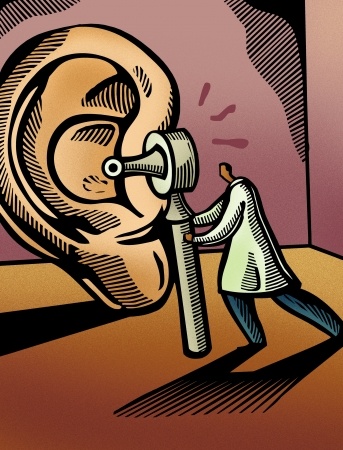I spent the five happiest years of my life in a morgue. As a forensic scientist in the Cleveland coroner’s office I analyzed gunshot residue on hands and clothing, hairs, fibers, paint, glass, DNA, blood and many other forms of trace evidence, as well as crime scenes. Now I'm a certified latent print examiner and CSI for a police department in Florida. I also write a series of forensic suspense novels, turning the day job into fiction. My books have been translated into six languages.
If there was semen on the toilet seat and it was still wet and sticky enough to stick to skin and then be transferred to underwear, then I suppose it would be possible.
It all depends on where you want to work and what they require. At the coroner's office we all had at least a bachelor's degree in a natural science like biology, because there were not any forensic degrees then. If you want to be a DNA analyst you will probably need to major in genetics or biochemistry. At the police department where I work, with our very small lab, we are only required to have a high school diploma--but you get extra points in the interview process for advanced degrees so we all have at least a bachelor's.Hope that helps.
There are numerous techniques for obtaining fingerprints from surfaces--black powders, colored powders, alternate light, superglue, dye staining. Once you can visualize the print, comparing one to another is done by noting all the information (where ridges end, divide, form a dot, have a scar, etc.) in one pattern and comparing it to another print's pattern. This can be done by a computer so that thousands to millions of prints can be searched quickly, all day, every day, all over the world, but is always confirmed by human beings. Despite what you see on TV!
After I spent 10 years as a secretary, bored out of my mind. I always liked mysteries and I liked science, but I never really thought about putting them together until long after my first round at college.
Hotel Travel Blog Active 2019
 What do you do if a guest is doing something illegal in a room?
What do you do if a guest is doing something illegal in a room?
Audiologist
 Can just one loud concert do serious damage to your ears?
Can just one loud concert do serious damage to your ears?
Magician
 How do you feel about magicians on TV who reveal how tricks are done?
How do you feel about magicians on TV who reveal how tricks are done?
I'm sorry, I"m sure I answered this question months ago, I don' t know why it didn't post. The answer is there's no way to guess, a doctor would have to look at it. If there's no tissue, DNA might possibly be obtained from bones or teeth.
a) I work at a police department. We have a small lab with equipment for processing for fingerprints and the rest of the office is regular office stuff--desks, computers, supply cabinet, coffee machine.We work mostly days, with someone on call tonight. b) Both. I work on my own for most call-outs and working on pieces of evidence, but for larger cases then we work as a team. c) Both, again. We have a lab but I probably spend only 5-10% of my time, on average, in there.
No. There are cases and victims that I feel sorrier for than others, but nothing reaching the level that I would call emotionally involved. Everything is over by the time I get there, and then I don't usually see the victims or other parties again so there isn't an opportunity to bond.
-OR-
 Login with Facebook
Login with Facebook (max 20 characters - letters, numbers, and underscores only. Note that your username is private, and you have the option to choose an alias when asking questions or hosting a Q&A.)
(A valid e-mail address is required. Your e-mail will not be shared with anyone.)
(min 5 characters)
By checking this box, you acknowledge that you have read and agree to Jobstr.com’s Terms and Privacy Policy.
-OR-
 Register with Facebook
Register with Facebook(Don't worry: you'll be able to choose an alias when asking questions or hosting a Q&A.)